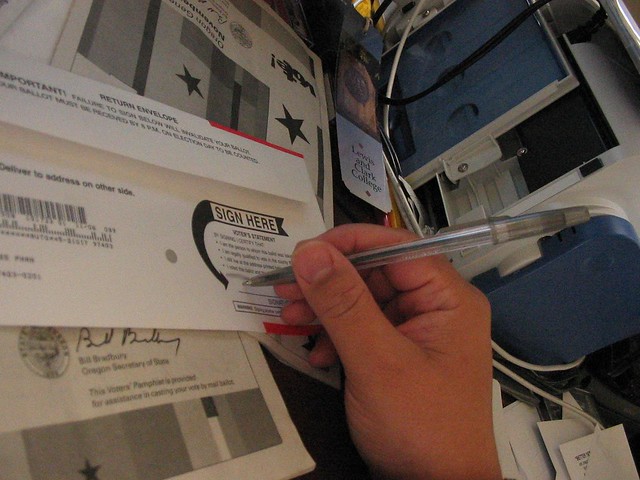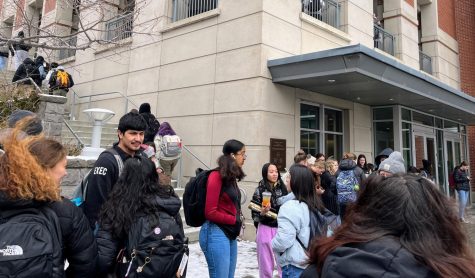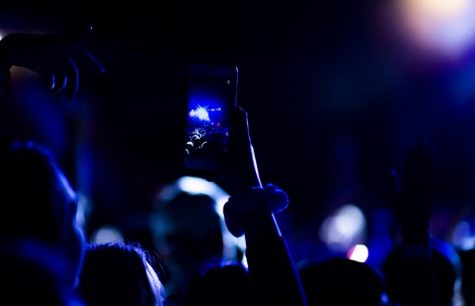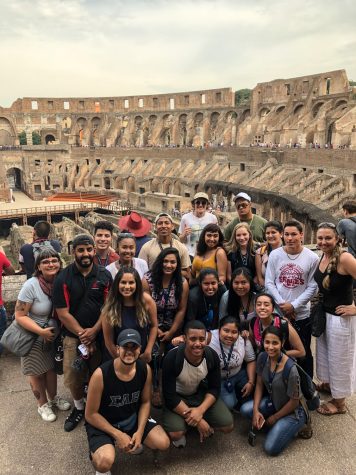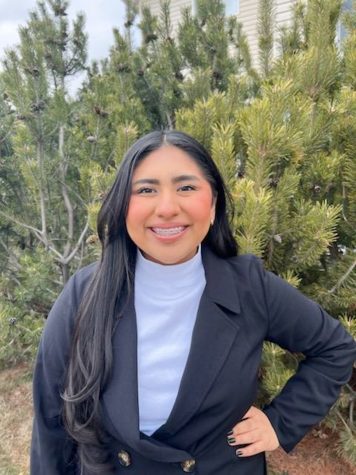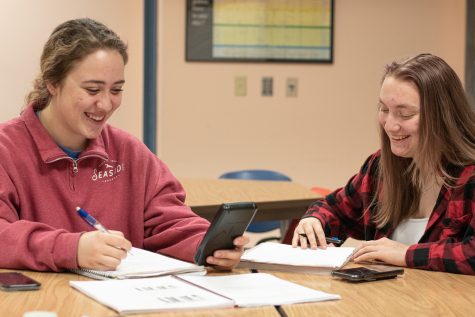Scholars discuss voting politics in a pandemic
Five states have vote-by-mail systems including Washington State
April 17, 2020
Political scientists discussed the politics of voting in a pandemic and possible voter suppression during a Thomas S. Foley Institute online forum Thursday.
Cornell Clayton, WSU Foley Institute director, said recent Wisconsin elections presented both technical and political challenges posed by the coronavirus pandemic. This included poll workers staying home and voters risking their health to wait in long lines.
Wisconsin Governor Tony Evers attempted to postpone the election and offered a plan for citizens to utilize mail-in balloting, Clayton said. Republican legislators opposed this attempt and the Wisconsin Supreme Court blocked Evers’ plan.
Democrats and Republicans nationwide are in disagreement regarding mail-in balloting for the presidential election in November, Clayton said.
Paul Gronke, Reed College professor of political science, said five states have vote-by-mail systems, including Washington State. Voters can request no-excuse absentee mail-in ballots in 33 states, with 13 states only allowing in-person voting.
Democrats in Congress are pushing for legislation to require all states to offer mail-in ballots amid the coronavirus pandemic, he said. Many Republicans oppose this due to ballot security, technical difficulties and potential disadvantages to political candidates.
Amy Klobuchar D-Minn. and Ron Wyden D-Ore. introduced the Natural Disaster and Emergency Ballot Act, which promotes mail-in and early voting to reduce the transmission of the virus, Gronke said.
“Some of these alternatives are necessary to provide full and equitable [voting] access,” he said. “This is going to be a high turnout election no matter what.”
There are efforts to make in-person voting safer, such as by providing protective equipment and maintaining sanitation requirements. Gronke said these are necessary efforts to promote health but voting is still dangerous.
President Donald Trump tweeted that Republicans should fight mail-in balloting expansion efforts because of the risk of voter fraud and because it “doesn’t work out well for Republicans.”
Todd Donovan, Western Washington University professor of political science, said academic literature does not show mail-in voting having huge partisan impacts. He said rolling out voting via mail does not add to any political party’s gain.
There is polarization when it comes to voting by mail because of perceptions of fraud, Donovan said. These stark partisan divisions do not make it seem likely for the Democrats’ push for nationwide voting change to occur, he said.
“I’m becoming less optimistic that there will be a partisan agreement,” Donovan said.
Howard Schweber, University of Wisconsin-Madison professor of American politics and political theory, said he foresees more elections similar to Wisconsin’s occurring.
Requiring in-person voting puts others at a disadvantage if they cannot travel, especially due to health restrictions, he said. However, there are no laws in place to guarantee individuals the right to vote.
Schweber said the only constitutional guarantee related to voting is the 15th Amendment, which states the government cannot deny a person the right to vote on the basis of their race. There is also the 19th Amendment, which ensures women have the right to vote.
This means there is nothing in the Constitution to regulate the delivery of voting, even if it is a shortcoming for voters. The exception is that a state needs to count ballots in a sufficiently consistent manner, he said. The difference lies in a government’s action or inaction when doing so.
“It’s almost impossible to argue a state has violated the Constitution or a person’s rights by failing to do something,” Schweber said.
A pandemic creates an environment where inaction can be carefully calculated and become an effective means of voter suppression, he said. There are few legal remedies to address this, yet it is very possible to happen in November. Schweber said he thinks it is unlikely the U.S. Supreme Court will protect peoples’ access to the ballot.
The full discussion can be accessed on the Foley Institute’s YouTube channel here.

